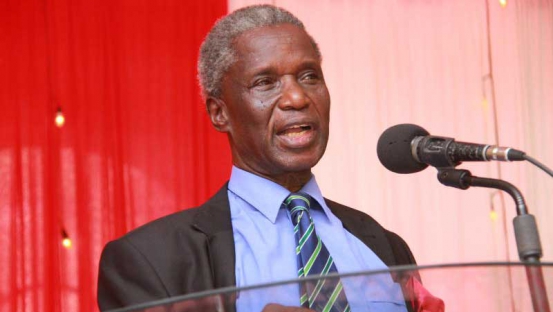×
The Standard e-Paper
Kenya’s Boldest Voice

Washington Omondi, one of the composers of the national anthem, could not hide his disappointment as he followed the events of a meeting that preceded the recent National Prayer Breakfast.
Prof Omondi, 76, says he could not believe it when former Cabinet minister Samuel Poghisio, who moderated the meeting at a Nairobi hotel, asked those who could sing at least the first stanza of the anthem to stand up.